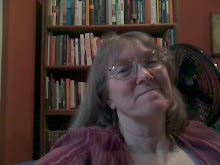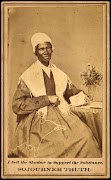We read T.S. Eliot's The Waste Land in class today. What fun! This is a memorable group. Students are supposed to write about the reading experience, so I'm doing the same. (A link is at http://eliotswasteland.tripod.com/ . I found it this time through Voice of the Shuttle: http://vos.ucsb.edu/index.asp --a great website for finding literary texts and articles about them. This isn't the same URL as the one in my original bibliography for this project, but it seems to be the same text.) We haven't read the commentary yet, and I resisted the temptation to clarify or to even correct misreading, since that's all part of making meaning, and I wanted to frustrate the process at first, to slow it down so we could see it happening—a few readers read translations from footnotes, but at some points we didn't even do that, and some readers wanted very much to read those footnotes! The Eliot virgins (a phrase filled with ironic [Freudian?] possibilities) have been asked to write without consulting anything but the poem. The rest of us are to focus as much as possible on today's reading. I started with Alex Marden on a hunch that he might be able to read the Latin—which he could. (Last year, a student I would not have expected to read either was able to read both the Latin and the Greek. He came in early as I h ad the text projected on the screen and rattled it right off. So much for stereotypes.) In good company with Shakespeare, Alex admitted to having no Greek, but, of course, most of us have no Latin either.
Looking at the first page of the poem, I love the image of the Sibyl deliquescing in the jar. Wonderful word, deliquesce. Rotting, but in a delicate way, reduced to juices. Not delicious, but the sound suggests it. Delicious, delicate deliquescence—the way of all flesh. Googling the word, I first realized that I had misspelled it, leaving out the c—Did you mean deliquesce? Google asked—and it didn't help my frame of mind that I can't recall my university ID number, one that I have typed hundreds of times, a chilling experience at my age, so I couldn't use the OED Online. But then I found a fascinating website (fascinating how many fascinating words have an s and a c back to back) at http://www.drbilllong.com/MoreWords/Deliquesce.html --actually by someone who takes pride in constantly losing senior citizen spelling beesand who has a degree from Gordon Conwell Theological Seminary, a school I had just mentioned this afternoon in a conversation with David Johnson, who is in the class that is reading The Waste Land. In a round-about way, I am providing free labor to Gordon Conwell, serving as a reader for Bill Haddock's doctoral dissertation. Bill Haddock is my pastor.Dr, Bill Long's website doesn't mention Eliot, but on one page, I saw something about The Great Gatsby, another text we've read in English 205. So the world gets curiouser and curiouser. BUT OF COURSE THE WORD DELIQUESCE ISN'T EVEN IN ELIOT'S POEM; IT'S IN THE FOOTNOTE, WHICH I MADE STUDENTS AVOID!
So with all of this, I haven't even passed the first page.
The readings were the best I've heard in several years of using The Waste Land as an elaborate experiment in reader response theory. I don't think we'll be able to top Matthew Khalil's Rhine maidens anytime soon, and Justin Garrity thundered well. Not that the other readings weren't just fine. It's always interesting to note where misreading happens, though—e.g. the word person accidently substituted for prison in one line and not another in "What the Thunder Said" and a few places where readers read through the white spaces between "stanzas"—not just errors where the reader doesn't know the vocabulary—that's not very interesting—but where an ironic layer of meaning comes out of some warp in the texture of the transaction between reader and text—that is interesting.
In the Reader Response approach we ask: Why does a particular misreading occur and with what implications? For example, Eliot's lines read, "I have heard the key / Turn in the door once and turn once only / We think of the key, each in his prison [the reader said person] / Thinking of the key, each confirms a prison [the reader pronounced prison correctly this time]. . ." (411-14). The error makes sense, since a person would be thinking within his or her person—to equate that person with a prison is an idea that takes more thinking. Does Eliot's text imply that we are imprisoned within our bodies? Does this indicate a dualism, with body and person two separate entities? When I typed the lines at first, I left out the repetition of turn once in line 412 and had to go back and put it in. Is it ironic to say turn two times with a conjunction (and) in between, but emphasize that it happens only once? I look at the pronouns in these lines and wonder, who are the referents of the pronoun We? There's a hall of reflecting mirrors implied here, I think—I'm thinking of you thinking of me thinking of us thinking of the key.











No comments:
Post a Comment